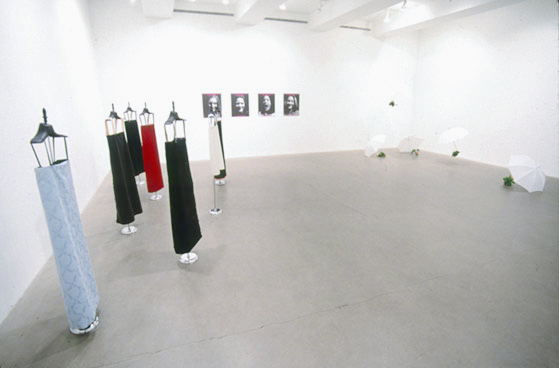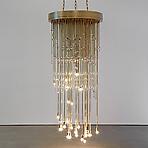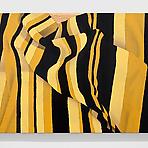Are You Experienced?
Carsten Holler, Ben Kinmont, Josiah McElheny, Rodney Sappington and Tyler Stallings, Keith Seward and David Kelleran, and Andrea Zittel
March 11 – April 9, 1994
Main Gallery
"Are You Experienced?" involves both an experimentation and extension of ideas I have worked with since the advent of the gallery - in particular, issues such as the scope of the "self" in art making and the choices surrounding the art object. This investigation into the relevancy of the art object and its potential for continued importance was particularly reflected in the exhibition "Work? Work in Progress? Work?" of 1990, where I asked a group of artists to work and create their "work" within the gallery space. The artists who participated in this exhibition were already struggling to find relevant ways to bridge their life practice and art practice. Their production helped reveal the structure of choice in art making and emphasized the status of the art object as still an appropriate and important vehicle for expression. This current exhibition, which incorporates artists with expertise in what would generally be perceived as areas outside the art system, continues this investigation into just how relevant the art object still is and how it continually expands with the freedom and choice to pursue knowledge in tangential fields.
One would assume that we had broken down all barriers to the acceptance of expanded "medium", but the contentious issues of choice surrounding artistic identity and personal identity were most clearly distinguished to me at a recent lecture. In response to a debate about the unnecessary need for work that is politically didactic a perplexed artist asked how it is possible to be both an artist and an activist. The implication that to maintain the purity and value of the art object one must choose to be either an artist or some other profession suppresses the idea that an artist has the freedom to be more than one identity and that this choice can be seen as expansive in its attempt to incorporate exterior bodies of knowledge.
In many ways this exhibition is about the consequences of expertise and knowledge in general and the idea that people who have expertise in certain fields are valued for the service or skill they provide. The title, in particular, brings into question our attraction to elevate experience as a litmus test for potency. Hence the desire to specialize becomes a projection in some way of the limitations of the human condition, and helps instill a sense of confidence in both ourselves and society. Pointedly, this desire for expertise has always been a forum for exercise of bourgeois control and therefore we must note how confining this desire for specificity can potentially be. For instance, the assumption that science is
more powerful than art stems from its concrete "accomplishments" or "discoveries" which are in effect generated by our fear of the unknown where we submit to the authority of the real/empirical. This exhibition is not just about evaluating the qualities of "experience", it is about recognizing the opportunities art affords us to expand upon various aspects of knowledge culled from more than one field and the continued satisfaction we derive from the role of the art object in this relation.
Art making, for example, allows for expansiveness, therefore areas of expertise conventionally perceived as outside art making such as math become a new form of expression when incorporated into art, similar to learning a new visual language or using a new "medium". The art object moves through time and therefore changes, generating an open dialogue with the audience rather than closed sense of reality. Since the gallery has always been about expanding, this project embraces the potential of expertise with the desire to expand our vision via the art object. It may be interesting to note the collaborative nature of many of the projects described below where one looks to break down the parameters of the personal and the intuitive and where the art object is no longer the product of a singular and elusive emotional response but a fusion of dialogues.
CARSTEN HOLLER
An entomologist with an emphasis in evolutionary theory and insect communication through scent and a Ph.D. in Biology whose work investigates biological human behavior in relationship to our instinctual necessities - in particular issues of sexual attraction and scent.
BEN KINMONT
In this particular project Kinmont speaks with Daniel Martin, Director of The International Coordinating Committee on Religion and the Earth, to create a prayer for well being and greater compassion within the art world The emphasis is on the reaffirmation of the art object as a structure for positive social change and the parallel dilemmas Kinmont discovered between the art and religious communities.
JOSIAH McELHENY
A professional glass blower and historian in the field of glass whose pieces intentionally blur the line between the ability to differentiate between authentic antiquities, reproductions, and fakes.
RODNEY SAPPINGTON and TYLER STALLINGS
A collaborative installation of cartoons, drawings, narratives, computer technology and a fanzine entitled Boys In Trance which emerges from ongoing work for the anthology Uncontrollable Bodies soon to be published by Bay Press. As filmmakers, writers and visual artists their work accesses the field of publications to explore language and the body as phenomenon and site for social critique, humor and projection.
Readings by the following contributing authors to Uncontrollable Bodies will be presented from 5-6 PM, March 11: Gregg Bordowitz, Scott Bukatman, Alan Sondheim, and Lynne Tillman
ANDREA ZITTEL
Andrea Zittel is an artist working within the area of design, her latest release is a line of garments expressing a new definition of integrity and simplicity. Unlike regular clothing
A-Z garments are created without altering and destroying the configuration of the original shape of fabric from which they are made. The functional advantages of such a simple construction is evident in their demonstration of versatility and flexibility.
KEITH SEWARD and DAVID KELLERAN
Keith Seward and David Kelleran share an intense involvement in the expanding boundaries of computer technologies and are particularly interested in investigating how these boundaries overlap with sexual practices. Seward, the only non-artist in the exhibition, recently co-produced the first issue of the impressive CD-ROM magazine called BLAM! which parodies the popular idea that interactive computer technologies "empower" users; BLAM! is blatantly, brilliantly manipulative, and thus perhaps performs for the rhetoric of digital culture a service similar to that which Sade did for the enlightenment . Kelleran's recent work -- based on on-line information networks -- has also focused on how interactive telecommunications can readily lend themselves to sadistic impulses by allowing someone to create not only multiple identities -- but just the right identity to f*** with whoever's on the other end of the line.


